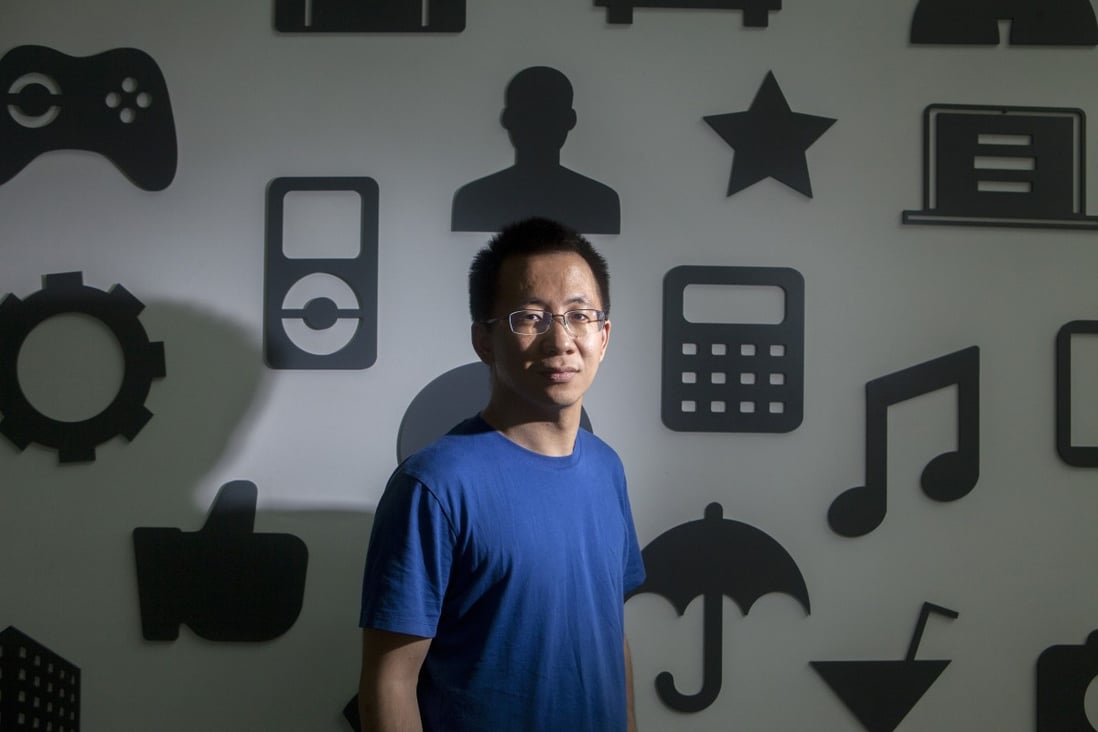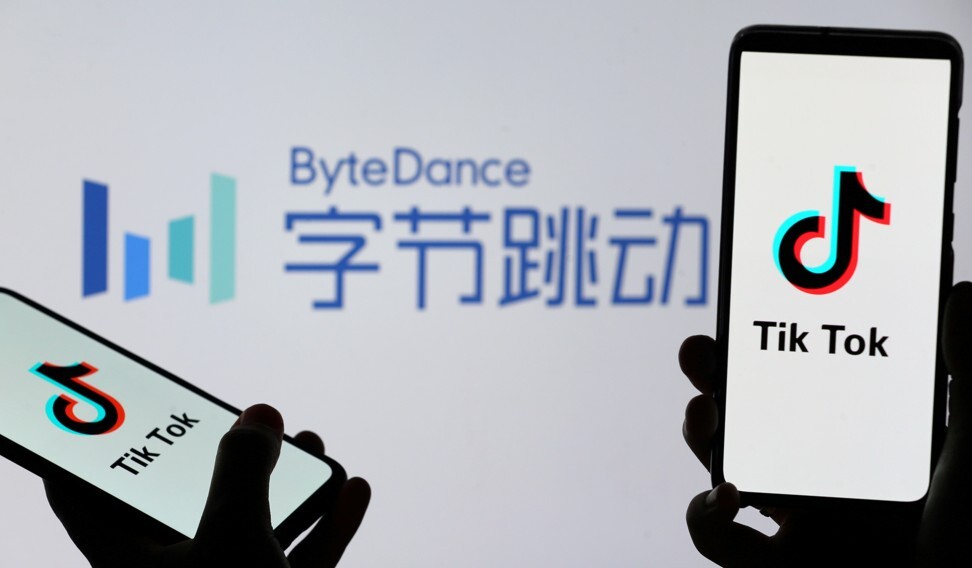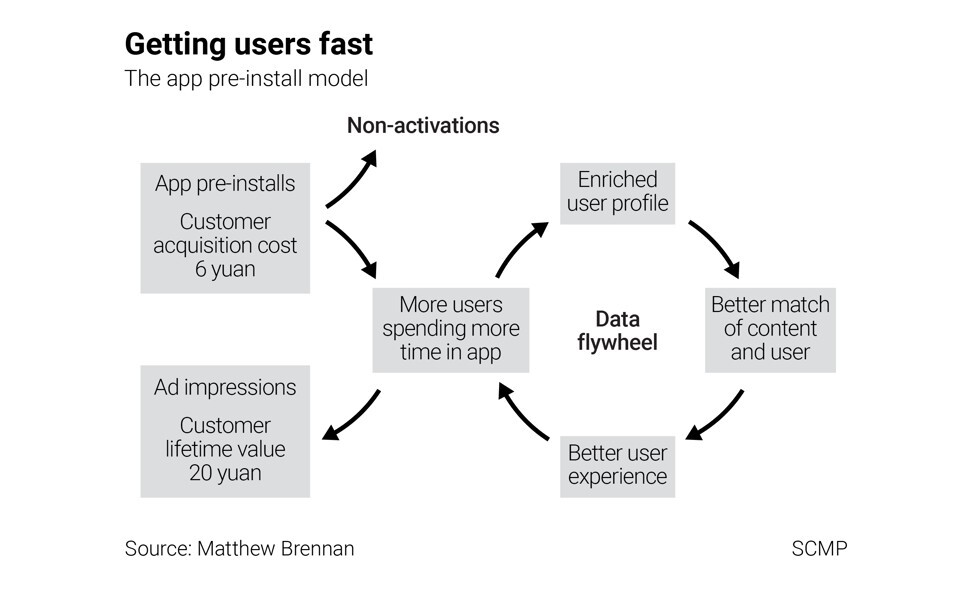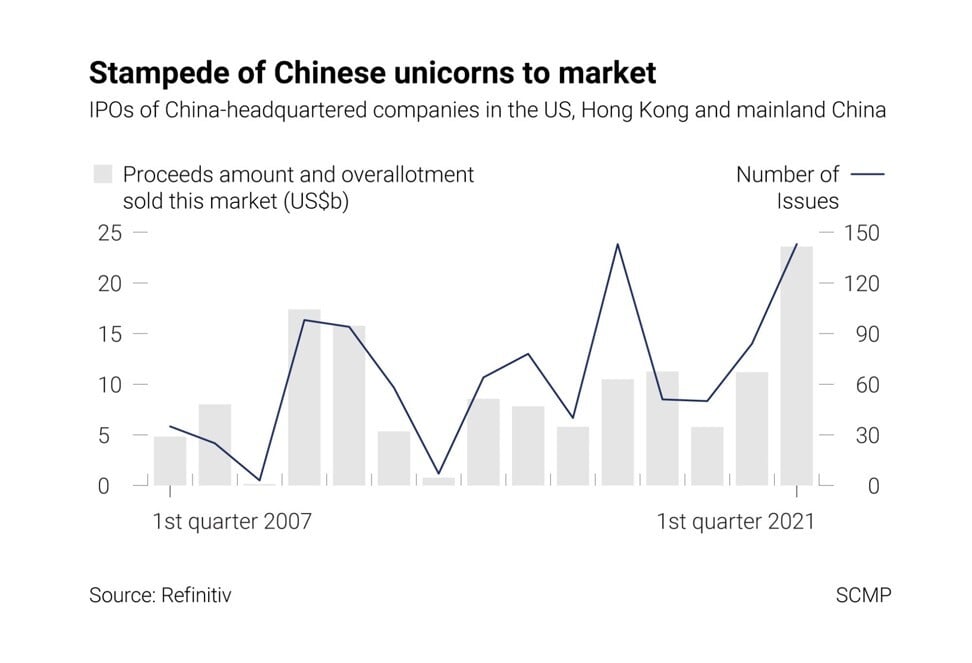
Zhang Yiming, one of China’s wealthiest entrepreneurs, said he is ready to throw in the towel after nearly a decade running the world’s largest unicorn ByteDance Technology, becoming the latest among the country’s technology founders to step down in their prime.
Zhang will relinquish his role as chief executive of Beijing-based ByteDance, giving up his day-to-day responsibilities to “be more impactful on longer-term initiatives,” according to an internal memo posted on the company’s website. Zhang, who turned 38 last month, has a net worth of US$35.6 billion, according to Forbes.
“The truth is, I lack some of the skills that make an ideal manager,” he said. “I’m more interested in analysing organisational and market principles, and leveraging these theories to further reduce management work, rather than actually managing people.”
“[W]hen companies mature and expand, many fall into the trap of the CEO becoming overly central – listening to presentations, handling approvals and making decisions reactively,” Zhang added. “This leads to an over-reliance on existing ideas already in the company, and results in knowledge structures being slow to iterate.”

He also said that the busy job of chief executive restricted him from following his passions, especially the latest technical developments.
“Before 2017, I spent a lot of time keeping track of developments in machine learning, but since then,” he said. “While I do my best to bookmark technical articles online, I haven’t had the time to make much progress digging into the area.”
“Similarly, I’m not very social, preferring solitary activities like being online, reading, listening to music, and daydreaming about what may be possible,” Zhang said.
Taking his place will be ByteDance co-founder Liang Rubo, currently the company’s head of human resources and a close colleague of Zhang for many years.
“Over the next six months we will work side by side to ensure the smoothest possible transition,” said Zhang. “Through the end of the year, I will work closely with Rubo as he transitions into the role of CEO, and I know you will all also support him.”

Liang, Zhang’s dorm mate in university, worked at ByteDance from day one as co-founder to build the company into the world’s most valuable start-up. Liang has taken on numerous roles within the company, including the head of research and development, Lark and Efficiency Engineering, and most recently, Human Resources and Management.
The letter to employees did not address any other position changes for Zhang, who is also currently chairman of the company’s board of directors and holds 25 per cent of the company’s shares, according to The Wall Street Journal report in September 2020.
Zhang’s resignation follows a growing trend of Big Tech CEOs stepping back at the peak of their career.
In 2019, founder of China’s largest e-commerce platform Alibaba Group Holding, Jack Ma resigned from his role as executive chairman at the age of 55 with a net worth at the time of US$45 billion according to Forbes.
Pinduoduo founder Colin Huang announced in March that, at the age of 41, he was stepping down as chairman of the e-commerce upstart with a net worth of US$46.8 billion at the time according to Forbes.

ByteDance last month put its IPO plan on the back burner, as it faced difficulties coming up with a business structure that could please both Beijing and Washington DC, according to two people familiar with the matter. One of the sources, who declined to be identified as the information is not public, said the Chinese start-up has yet to find a satisfactory way to restructure its business to meet regulatory requirements in China and the US. One major challenge lies in separating Douyin’s China-based operations from TikTok’s global operations because both apps share the same algorithm, the person said.
ByteDance is the world’s first and only hectocorn, a privately held start-up valued at over US$100 billion. ByteDance was valued at about US$140 billion post-money during its 2020 fundraising when Tiger Global Management backed the firm. It counts some of the world’s biggest venture capital funds as investors, including SoftBank, General Atlantic and Sequoia. ByteDance has amassed about US$4.4 billion across 11 fundraising rounds.

The Post reported earlier that the company, whose valuation was approaching US$400 billion for new investors, considered going public in either Hong Kong or New York. The company said late last month that it was not ready to file an IPO at that stage and had no imminent IPO plans, without elaborating.
ByteDance operates a broad portfolio of businesses including the viral short-form mobile video app TikTok, and its China-only version Douyin, the content discovery platform Jinri Toutiao, social media service Helo, work tools business Lark and platform services firm BytePlus.
ByteDance’s 2020 revenue reached US$37 billion, four times larger than smaller rival Kuaishou Technology, The Information reported in January
In a signal that the business is maturing and diversifying its capital structure, Caymen Islands-domiciled ByteDance took out a US$1.3 billion loan from HSBC, Goldman Sachs, Bank of America and other banks in 2019. It recently hired Chew Shou Zi from smartphone maker Xiaomi as chief financial officer.
However, the company continues to deal with headwinds overseas and at home.
The forced divestment of TikTok’s US operations initiated under the Trump administration is still undecided as President Biden’s administration put a pause on the legal action, but is still reviewing the issues of Chinese apps.
India banned TikTok along with dozens of other Chinese apps last year on national security grounds, the same reason the US used to try to force ByteDance to sell the app in the country, an issue that remains unsettled.
Domestically, tech giants have faced tighter antitrust regulations as Beijing named it one of this year’s governing focuses. Companies including Alibaba Group Holding and Tencent Holdings, Baidu and Didi Chuxing have been fined over unreported mergers and acquisitions.
ByteDance products are available in over 150 markets and as of 2020 it had over 100,000 employees.







